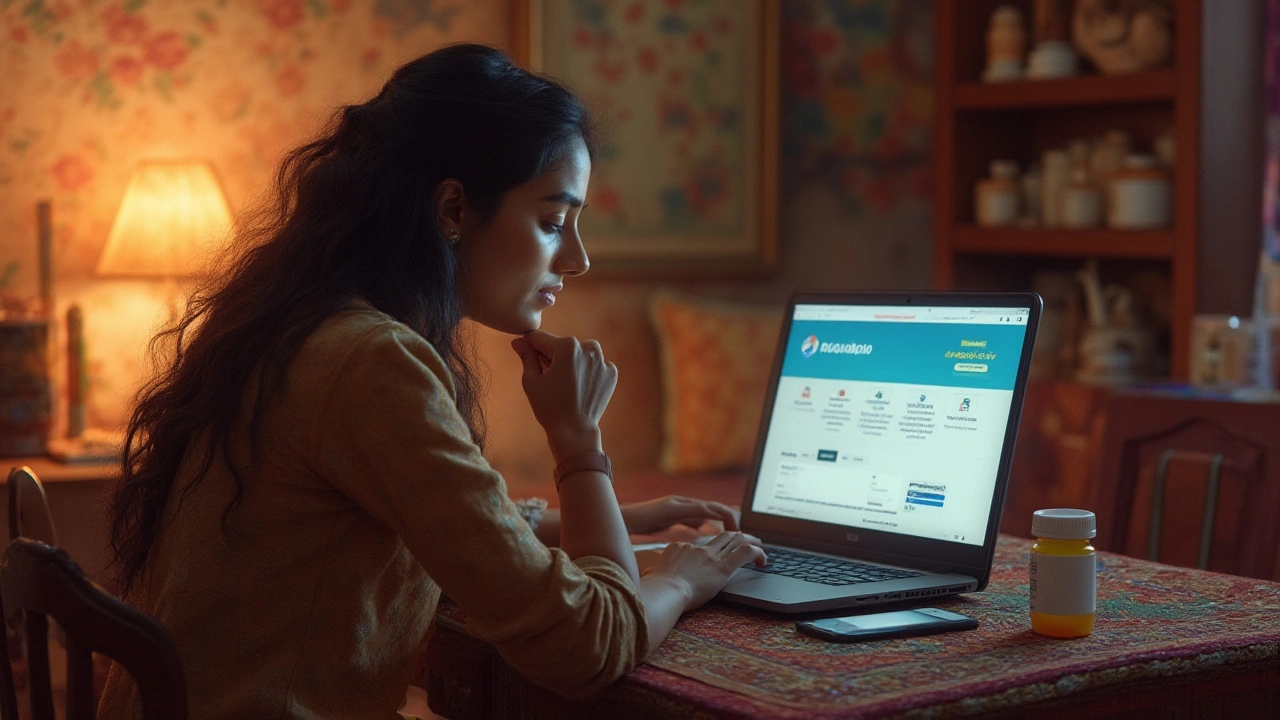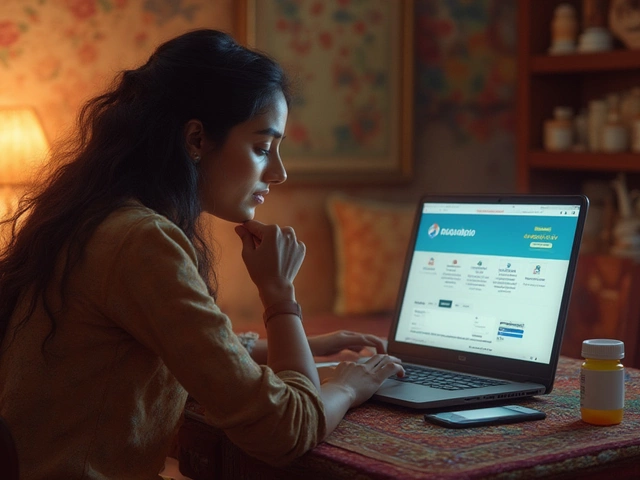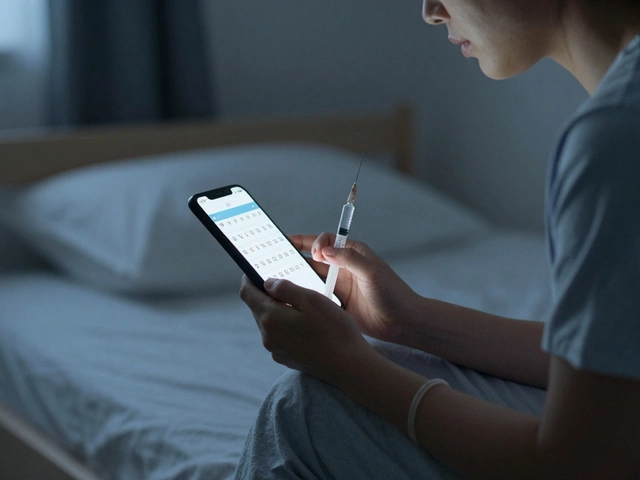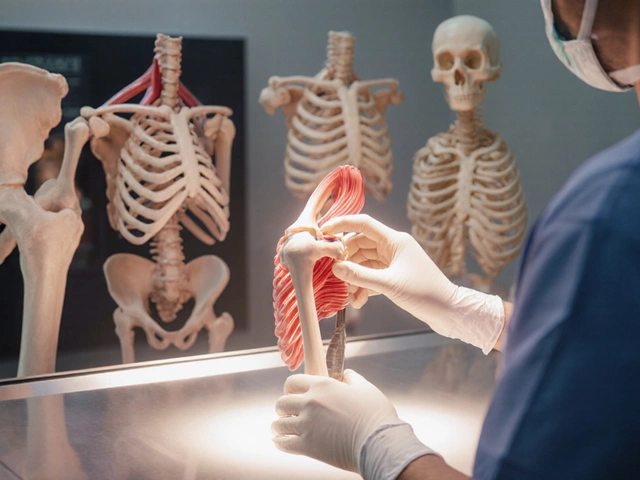Picture this: You’re feeling a bit under the weather. The idea of waiting in line at your local pharmacy is the last thing you want. So, you open your laptop and type ‘order medicine online.’ Suddenly, you’re staring at hundreds of online pharmacies, all promising the best prices and lightning-speed delivery. But here's the problem—how do you know which ones you can trust with your health (and your money)? Fake pharmacies are everywhere, and some look just as slick as the real deal. The question isn’t if people get duped, but how often—and what you can do to avoid being next.
The Anatomy of a Reputable Online Pharmacy
Let’s cut through the confusion. Some online pharmacies are totally legit, run by licensed pharmacists who play by the book. But others? Not so much. The trick is spotting the difference. Reputable online pharmacies go out of their way to prove they’re legit. For starters, they always ask for a valid prescription. This isn’t just bureaucracy—it’s a safeguard for your health. If a site offers prescription drugs without asking for a script (or tries selling you something that’s technically illegal), that’s your first red flag. Websites operating above board will plainly show their licensing or accreditation info, often right on their homepage. In the US, you might spot a VIPPS (Verified Internet Pharmacy Practice Sites) seal, which means the National Association of Boards of Pharmacy (NABP) has given their approval. In India, look for registration with the Central Drugs Standard Control Organization (CDSCO). In the UK, you’ll want websites licensed by the General Pharmaceutical Council. A lack of any of this info? Out with them.
You might notice real pharmacies often have a verified brick-and-mortar address—yes, a place that physically exists. Most will also let you contact an actual pharmacist to answer questions about your meds. They don’t try to dodge responsibility if something goes wrong, either. That’s another sign you’re dealing with professionals, not scammers running the operation from a dodgy basement.
Legit pharmacies stick with top privacy standards. They’ll use encrypted payment platforms to protect your information, and their privacy policies will be clear as day. None of that fine-print nonsense or treating your health data like it’s up for grabs. Some dodgy sites will try to redirect you to sketchy payment processors, which is a sure-fire warning sign. You should always see ‘https://’ in the web address—meaning your connection is secure. Even better if there’s a little padlock icon in your browser.
Another clear marker: Reputable pharmacies communicate delays, out-of-stock situations, or any issue affecting your order. They care about your experience because their business depends on trust. Unreliable pharmacies often vanish into the digital mist when there’s a problem. Don’t expect them to reply if your shipment goes missing or the meds look funny.
Price can tell you a lot, too. If a website is selling prescription meds at a fraction of the usual cost (say, 80% off), be cautious. Genuine pharmacies need to cover overhead, salaries, and shipping. If prices seem ‘too good to be true’, that’s usually because they are. Stick with sites whose prices look realistic—even if it stings a bit to your wallet. It ends up less painful than getting fake or dangerous drugs.
Let’s not forget, honest pharmacies will have clear methods for reporting problems. If you can’t find a way to reach customer support—or if contact details just bounce—you know you’re in murky waters. In fact, a real pharmacy encourages your feedback and takes action if something’s off. Suspicious ones usually avoid every form of accountability.
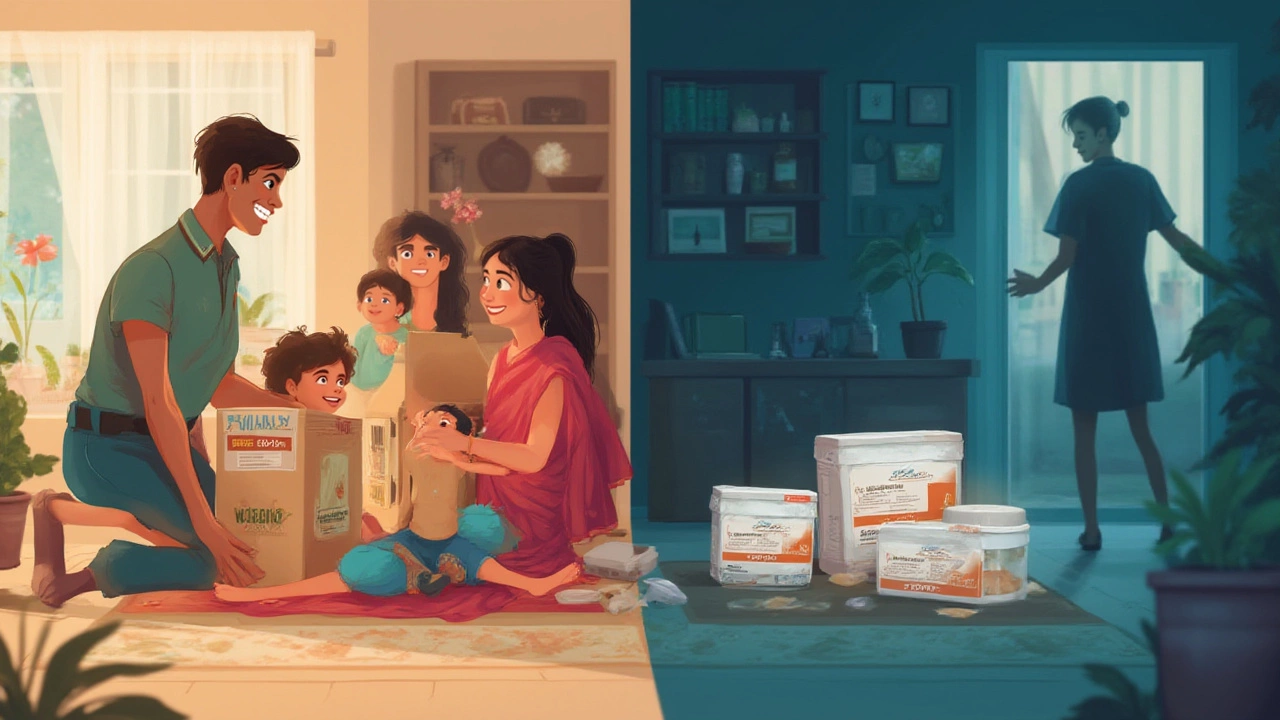
Why Verification Matters: Protecting Your Health (and Cash)
This isn’t just about money. There’s something a little darker at play. It’s scary, but fake meds can cause real harm. The World Health Organization said a whopping 1 in 10 medical products in low- and middle-income countries is substandard or outright fake. Imagine popping a pill you thought was your blood pressure medicine—only to find out it was filled with nothing useful, or worse, with harmful chemicals. There have even been news stories of people ending up in the hospital (or worse) after trusting a slick-looking but dodgy online drugstore.
A few years back, a US federal review revealed that almost 97% of online pharmacies were breaking the law in some way. That’s not a small number. These sites might ship counterfeit drugs, pills with no active ingredient, or even highly potent meds that could cause dangerous side effects if you’re not careful. The problem is massive, and even the experts can get tripped up. That’s why verification is more than bureaucracy; it might literally save your life.
So, how do you check if an online pharmacy is for real? The big one is sticking to pharmacies listed by regulators like NABP in the US (their website lists approved sites for free), or by checking registration with your country’s equivalent authority. In India for instance, legitimate operations are listed on the CDSCO’s site. The UK has the MHRA register online. Look this stuff up before buying. I learned a hard lesson when a friend of mine snapped up a cheap antibiotic online and ended up getting nothing but dyed water in the mail. Not only did he lose money—he lost a week recovering with no real medication.
Here’s an odd but telling tip: Look at the website language. Counterfeiters often use broken English or confusing text. If the pharmacy homepage is full of typos, odd phrases, or just feels off, pay attention. When I showed one to Anjali, she called out the grammar mistake before I even noticed. Sometimes, it really does pay to have a second pair of eyes (thanks, Anjali!).
Reliability also shows up in shipping details. Real pharmacies are transparent about where they ship from, estimated delivery times, and return policies. They don’t pull flagrant stunts like ‘guaranteed overnight global delivery for all meds’. If it sounds impossible, it probably is. If they’re willing to ship prescription drugs to a country where they’re illegal, or without local approval—that’s another giant warning sign.
You also want to make sure that the pharmacy will protect your personal data, not bombard you with spam or, worse, steal your credit card info. Only share sensitive personal or payment details over secure, verified websites. And don’t use wire transfers—stick with recognizable payment processors like credit cards or PayPal. That gives you some recourse if something goes wrong.
Want a handy list? Here are some proven ways to vet your online pharmacy:
- Look for licensing/accreditation from the appropriate country authority
- Require a valid prescription from your doctor
- Make sure they display a real address and contact information
- Check online reviews on independent sites, not just their own testimonials
- Search for their name on regulator ‘blacklists’ or warning lists
- Check the security credentials of their website
- Contact their pharmacist service (real pharmacies offer this)
It pays to do your homework, because a pharmacy that cuts corners with legal stuff is probably cutting corners with medicine quality too. Your health deserves more than rolling the dice on a sketchy website.
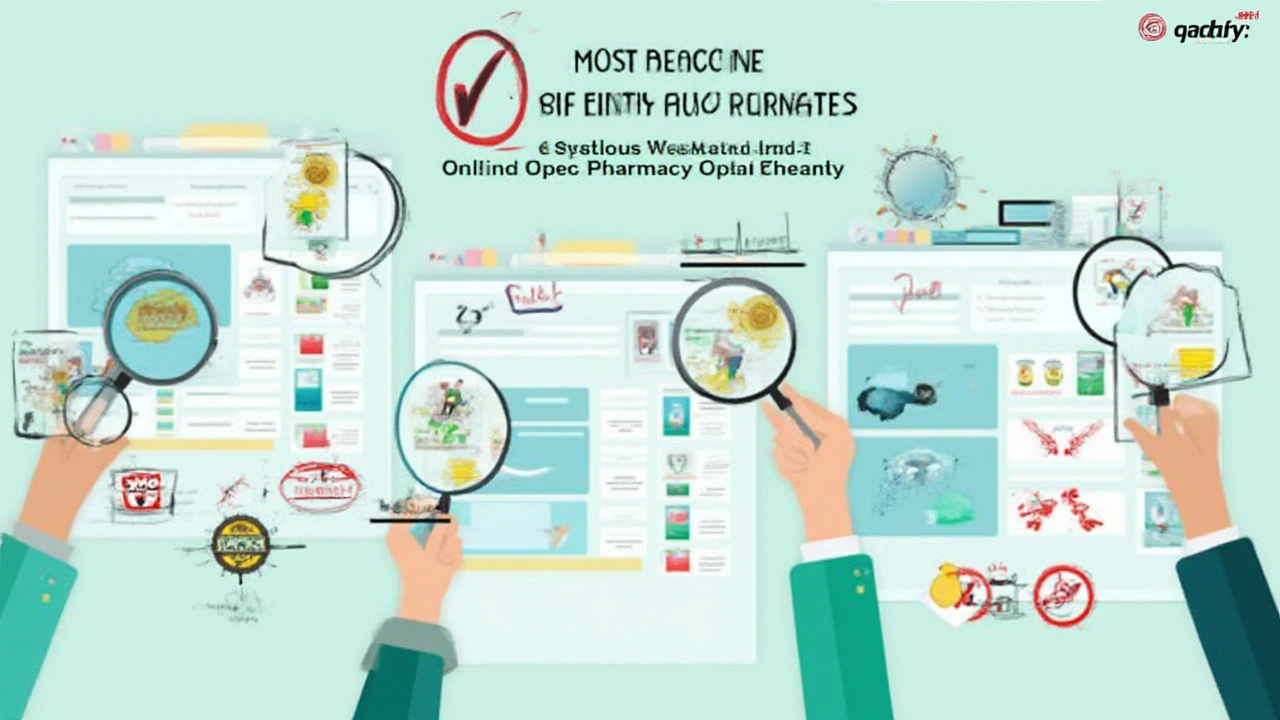
Busting Myths, Reading the Fine Print, and Red Flags to Watch
Let’s bust some persistent myths. No, not every online pharmacy is a scam—but the sheer number of fakes means you have to stay sharp. Myth number one: ‘If it pops up on Google, it must be legit.’ Not even close. Many fake pharmacies pay big money to appear high on search results. Google and other search engines have cracked down, but scams still slip through.
Fact: A big name isn’t always a guarantee, but big chains like Walgreens, Boots, or Apollo Pharmacy do have established online operations you can trust. Still, always start from their official website—don’t click on weird links you get by email or WhatsApp. Phishing is a real danger—criminals create perfect lookalike sites just to steal your details.
Another myth: Only the cheapest sites are fake. In reality, some scam sites copy the pricing of genuine pharmacies so they’re harder to spot. Look for subtle details. If you see a perfect five-star rating with no negative reviews, be skeptical. Real customers complain—at least sometimes. Too much perfection is a red flag. Check third-party review sites, but don’t blindly trust them either. Some hire people just to post fake reviews.
Read the fine print, always. Trusted pharmacies lay out their policy on refunds, privacy, returns, and complaints clearly. If it’s complicated or hidden, be wary. Some countries—like Canada and Australia—require extra steps for legal sales of prescription drugs. If a site skips these steps, they’re not serious about the law or your safety.
Here’s where things get serious. The risks of using a bad site aren’t just wasted money. Receiving fake antibiotics, painkillers, or even insulin can be life or death. According to the FDA, counterfeit medicines have killed people in the US, UK, and India. These aren’t horror stories—these are real events. One famous case involved counterfeit Avastin shipped to US clinics, leading to unnecessary suffering for cancer patients. That’s as real (and dangerous) as it gets.
Kids and seniors are especially vulnerable. Some fake pharmacies directly target older adults with spam emails and offers for ‘miracle pills’ or unapproved treatments. The elderly often take multiple meds, making them a juicy target. If you’re helping a parent or grandparent navigate online pharmacies, triple check every step and don’t be afraid to call the regulator’s hotline before you buy.
You might be surprised, but governments use undercover ‘mystery shopping’ to catch pharmacy fraudsters. In 2024, the NABP found that out of 15,000 online pharmacies reviewed, less than 5% met basic safety standards. That’s a wild statistic. Here’s a quick look at some revealing numbers:
| Criteria | Legit Pharmacies | Fake Pharmacies |
|---|---|---|
| Require Prescription | 99% | 15% |
| Licensing Displayed | 98% | 3% |
| Customer Service | 95% | 20% |
| Transparent Pricing | 92% | 27% |
| Privacy Policies | 97% | 12% |
Does this mean you should never buy online? Not at all. Many legit online pharmacies offer convenience, privacy, and, yes, decent prices. My brother orders his regular prescription from a certified Indian pharmacy that lets him talk to a pharmacist on WhatsApp before placing the order. That’s the gold standard: transparency, accreditation, and real people when you need them.
Bottom line? Buying meds online can make life easier, if you put in the work up front to stay safe. Take a couple extra minutes to check credentials, call their support, and scan for those tiny but telling warning signs. Think of it as insurance for your health. A reputable online pharmacy should never make you guess. It should make you feel secure. Trust, but verify. If a site can’t answer simple questions about their accreditation, privacy, or pharmacists, steer clear and keep searching for the real deal.
